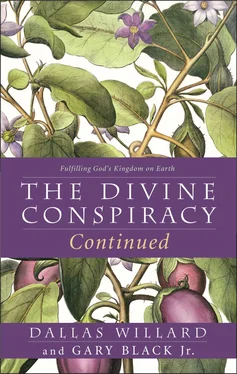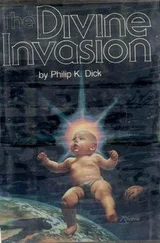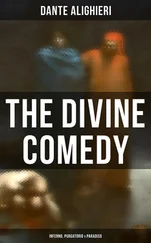—Keith J. Matthews, chair and professor of Spiritual Formation & Contemporary Culture, Graduate School of Theology, Azusa Pacific University
“It is not very often that I encounter a new idea, but The Divine Conspiracy Continued has good, new, surprising, and challenging ideas at every turn. Willard and Black help move serious Christians from ‘renovation of the heart’ to renovation of their professions to renovation of their cultures. If lawyers, doctors, teachers, and ministers take this book to heart it will go a long way toward making our world, in John Calvin’s lovely phrase, a ‘theater for the glory of God.’”
—Robert F. Cochran Jr., Louis D. Brandeis Professor of Law and Director, Herbert and Elinor Nootbaar Institute on Law, Religion, and Ethics, Pepperdine University School of Law
“This is a fantastic book that provides a grand masterpiece for how we pursue and embrace personal transformation in order to be God’s transforming agents in the world. These pages are filled with the great themes that call us to pursue and embrace the with-God life that is life indeed.”
—Gayle Beebe, president, Westmont College
I read this book with a group of people from different vocations and professions. The conversations we had were absolutely riveting. The book created a space where we could wrestle with dangerous, paradigm-shifting questions. The process reminded me how the people in our churches long to know how to live out the reality of the kingdom of God and ‘be genuinely good’ in the complicated and conflictual situations of their vocational life. This book speaks marvelously to this longing. It is an invaluable resource that can help pastors enter more fully into their congregation’s world and discover together the wisdom of Jesus and the way to real life.”
—Mike Lueken, coauthor of Renovation of the Church
“ The Divine Conspiracy Continued brilliantly combines the legacies of Dallas Willard the disciple-maker and Dr. Willard the scholar. He helped us grasp the nature of truth and justice, and illuminated the deeper causes of the transformations unfolding in both Western culture and in the human heart. In this book, Willard has joined forces with theologian Gary Black Jr. to help us know better how leaders can mobilize as disciples of Christ to renew truth and justice within the modern world. Don’t miss this book.”
—Greg Forster, program director, Kern Family Foundation, and author of Joy for the World
“Dallas once said ‘True social activists are those who live as apprentices of Jesus in their ordinary relationships.’ While many try to change society by laws, Willard and Black illustrate that changing society requires leaders, in every area of life, to live a Christlike life.”
—Ihab Beblawi, M.D.
FOREWORD
Remembering Dallas
DALLAS WILLARD SUCCUMBED to the effects of pancreatic cancer prior to the publication of this work. His death has proven to be one of the most significant losses I have experienced, a fact I accept with equal measures of foreboding and gratefulness. I was wholly unprepared for losing Dallas as a mentor, guide, and friend. I was also unaware of how his loss would cause me to discover how deeply our relationship and his teachings affected me.
Although Dallas was candid with me about his illness and I was aware of the difficult challenges of pancreatic cancer, we remained optimistic about his ability to finish this project until only shortly before his death. Therefore, from the beginning of our work together we were both under the impression, and there were reasonable signs of hope, that his condition would improve enough that he would be able to at least finish the manuscript together. Perhaps I didn’t allow myself to seriously consider the alternatives. Nevertheless, even up to the final few days of his life, we were progressing toward that goal. However, as events transpired, I found myself needing to do what I hoped would be not be necessary, which is to describe some of the overarching vision that motivated Dallas to create this work and how I came to be involved as a coauthor.
I will begin near the end. On May 5, 2013, I received a phone call from Jane Willard, Dallas’s wife, at about nine thirty in the morning. She told me how Dallas’s health was deteriorating and asked if I would be able to stay a few days to help him get around the house. He needed assistance moving from place to place safely. She and I had talked a few weeks earlier about the possibility of my staying in the guesthouse and working on the book projects we had in process. I had previously mentioned that I was with my grandmother as she succumbed to pancreatic cancer, and I offered to help in any way I could. Jane asked if there was any wisdom or experience that I could relay about the issues they might face toward the end of Dallas’s life. I told her all I knew. Like my grandmother, Dallas was experiencing the highs and lows, times of strength and clarity followed by moments of significant weakness. When Jane called that Sunday morning, she was characteristically deferential in her request, making me promise nothing would inconvenience my family. I told her we were all happy to help.
As I packed an overnight bag, my wife gathered our two teenage daughters to pray with me before I left. It was difficult for me to tell my children about Dallas’s prognosis, and I struggled with my emotions as I discussed what might lie ahead. My elder daughter asked me, “Dad, what is it about Dallas that has had such a strong impact on you?” As I looked into my daughter’s eyes, my mind raced back some twenty-five years to my first encounter with Dallas. For a person who often can’t recall exactly what he had for breakfast the day before, for some reason I have been able to maintain a vivid memory of that first introduction. Even now, whenever the weight of that distant memory hits my heart, tears are not far behind. For me and countless others, God saw fit to use Dallas and his teachings to spark a foundational shift in our lives, our understanding of the gospel of Jesus Christ, and our awareness of the grand purposes God has for humanity in and through his kingdom. Though unknown to me at the time, my daughter’s question can serve us well as a means to both explain my participation in this work and start our journey into the objectives and hopes we have for this book.
I was first introduced to Dallas’s work in 1991. I had been out of college for two years and had two years of marriage under my belt. My wife and I were living in the San Francisco Bay Area, and I was attempting to establish a business career in the “real world.” As my new bride and I were settling into our cramped little apartment and the challenges of adulthood, we also began to attend a local Covenant Church. There I met a fresh-faced associate pastor named Keith Matthews, who soon invited me to an early morning breakfast. After pleasantries and personal histories were exchanged, he suggested we consider a regular one-on-one breakfast session during which we would discuss a chosen book. Keith was then, as he is now, encouraging, energetic, and intentional about discipleship to Jesus, and I was beginning to miss all the deep, late-night conversations about God and the meaning and purposes of life that I so enjoyed during my university days. So I agreed.
The next week Keith handed me Dallas’s first book, In Search of Guidance: Developing a Conversational Relationship with God (available today as Hearing God ). I remember immediately balking at the title.
“Developing a conversational relationship with God?” I asked incredulously.
Keith only smiled. He told me Willard was a philosophy professor at the University of Southern California and also a Southern Baptist minister. Keith was toying with me now. He knew of my deep Southern Baptist roots, and we had previously discussed some of my growing discomfort with the eccentricities of modern evangelicalism. Having studied postmodernism briefly in college, I was familiar with some of the emerging ideas in epistemology that conflicted with the traditional modern conceptions of knowledge used to underpin many Christian doctrines. I assumed Keith had to be mistaken.
Читать дальше












